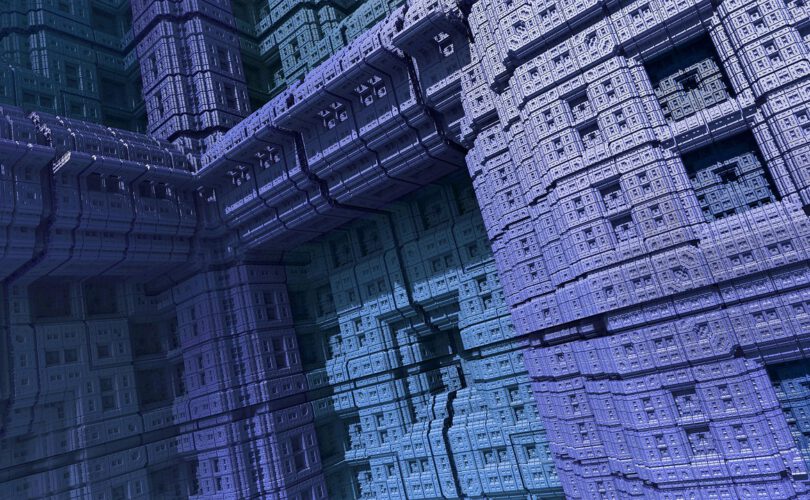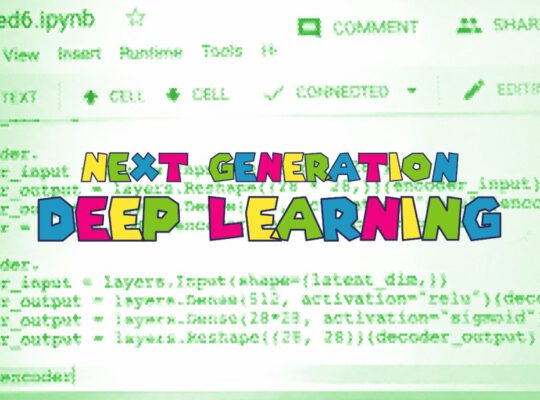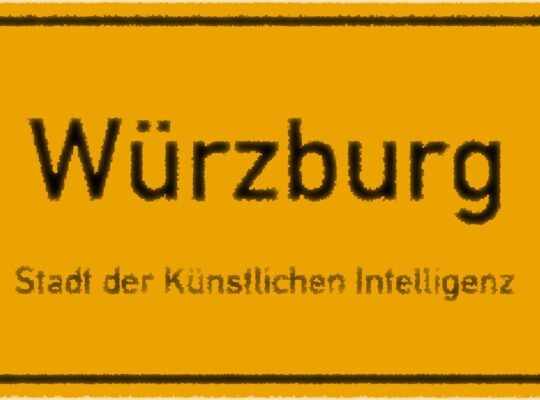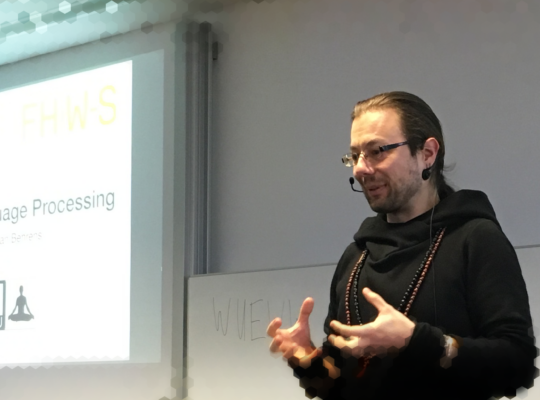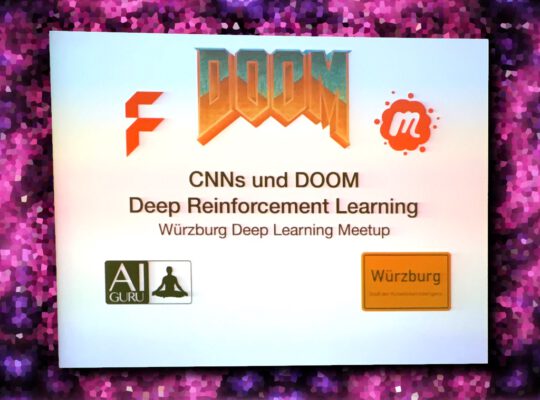Namaste! Yesterday I had the pleasure of being the keynote speaker at Smart City Würzburg Meetup. Artificial Intelligence and Smart Cities have a huge overlap. In our time where all development accelerates immensely, it is amazing to see many powerful technologies converge.
Before I talk about what Smart Cities is, let me talk about its goals. When I checked online I stumbled upon a set of three very interesting goals:
- Livability: This is about improving living conditions for people. Providing and maintaining a clean and healthy environment.
- Workability: Providing a holistic infrastructure that enables people and fosters their productivity. Includes access to computing power, connectivity, energy, and other essential services. Makes cities more competitive in a healthy way.
- Sustainability: Ensuring that all of the above is provided an facilitated without creating any costs for future generations that will follow.
From my personal point of view, these goals make sense. Let us now consider the question: What is behind the Smart Cities concept? The answer is not a trivial one. As with many other modern concepts, Smart Cities is about different components, that are made to interact in a manner that makes sense, in order to achieve some goals. We already have the goals at hand. What are the means to these ends?
The means include but are not limited to:
- Big Data,
- Internet of Things,
- Geographic Information Systems,
- sensors,
- Cloud Computing,
- converged communications, and last but not least
- Artificial Intelligence.
After going through some search results, I got the impression that Artificial Intelligence is going to boost Smart Cities significantly. You have seen all the successes of AI. Especially with Machine Learning and Deep Learning. You have also seen integration progression. We see more and more computing power on an exponential basis. And this is definitely going to have an impact very, very soon.
Did you know...
That you can book me for trainings?That I could be your mentor?
Feel free to get in touch anytime.
A use-case: Smart Cities meets Predictive Analytics.
Remember Jim Gao’s milestone paper? Years ago he showed how to successfully apply Deep Learning on time series. And he showed how this approach can be used in order to increase the Power Usage Efficiency of one of Google’s data centers. He basically took two year’s worth of data, including data from the data center and weather data. The idea was quite straightforward: Assume that you have a system that would allow you to predict tomorrow’s efficiency, you could easily create a system that can optimize energy consumption.
It turned out that this assumption was correct. Energy was saved. And on top of that… this is a very crucial point… The same Neural Network also worked for other data centers. It generalized quite well. Or as we Deep Learning Engineers say: The model did not overfit on that specific location.
A similar approach can be used in the Smart Cities scenario. If you could predict the air quality in the near future you could improve it. If an AI based system would indicate that the air quality would decrease, you could counteract this by intelligent traffic control. This is being implemented in Taiwan. The prospect is a high-resolution air quality prediction up to 1km, and 3 up to 10 days in advance. An interesting detail of the approach is that the developers used weather data from other cities, including London. The relations between weather and air quality seem to have similar patterns all over the world. Generalization again. Also, they take onto account telecommunications carrier’s data about population density, which also has an effect on air quality. Smart!
Brace yourselves. More use cases…
I admit. Predictive Analytics for optimizing air quality is already a great thing by itself. But there is a lot more. More use-cases in Smart Cities that make use of Artificial Intelligence. Wanna hear?
Shot Spotter.
Shot Spotter is a very sophisticated piece of technology. It is an implementation that automatically recognizes and locates gunshots. The company behind it claims that around 80% of all gunshots are not investigated. I have to admit… For me as a German, the need for locating gunshots is something that I do not really think is relevant in my society. There are not so many shots fired in Germany. But in New York and 90 other cities, it is definitely a crucial issue.
Unified Medical Information Analysis System.
This is a project from Moscow, Russia. It is about collecting and analyzing e-health records. The last time I checked, 78% of the city’s residents were covered by the system. As usual, if you have a lot of data such as e-health records, you can create an Artificial Intelligent that makes good use of that data.
There is also another project in Moscow. By cross-correlating medical data and school attendance, a system is supposed to predict virus outbreaks. It would just tell students to stay at home on critical days.
Clean Streets in Las Vegas.
Predictive Analytics and Predictive Maintenance are very related. The idea of Predictive Maintenance is that you could save time/money/energy by deviating from fixed maintenance schedules while embracing the more liberal approach of maintaining only when really necessary. In Las Vegas, you will find many cameras in parks. Cleaning crews only go to specific locations to do their works if the deployed Artificial Intelligence detects trash or graffitis. A significant aspect of the system is that it does not record the people that caused the trash and graffitis.
As you might have realized, Visual Surveillance is a large use-case of Artificial Intelligence and Smart Cities. As technology improves it is becoming more and more possible to deploy AI directly into the cameras rendering the need for transmitting, storing and offline-evaluating visual data obsolete.
Fighting Overbuilding in Ho Chi Minh City.
Ho Chi Minh City in Vietnam faces the same challenges that other cities all over the world face too. City development is a challenging task, which has to adapt to ever-growing cities. How does actual city development alight with planning and zoning? This is an important question. It can be answered by an AI that autonomously evaluates satellite images in order to recognize land cover and patterns of land-use.
Of course, there is also a Smart Cities dark side…
Chinas social credit system. You all have heard about this. Currently, I do not have a stable opinion about that. But I seem to have a tendency towards that I would not feel so good if I would be part of such a system. Facial recognition is used to identify individual citizens and their behaviors. Each individual has social credits. And each rule violation will decrease the score. Currently, each government department will have its own credit system. China’s goal is to join all those systems into a Universal Social Credits System. It might be possible that people with a low score would lose work or educational opportunities, or travel rights, or vacation time… This is something that is worth intense examination and discussion, I guess.
A summary of some sort.
Artificial Intelligence is a definite boost in the Smart Cities concept. Progress in AI will definitely fuel progress in Smart Cities. Making use of Big Data, which will be turned into Smart Data with the appropriate tools. Of course, this is going to create more need for discussions about ethics and security. But I am very confident, that we will find a good way. You know this because we are already discussing the issues a lot. This is good.
Further reading.
- AI in Smart Cities on Medium.
- Huawei unveils artificial intelligence smart cities platform.
- Urban IoT and AI: How Can Cities Successfully Leverage This Synergy?
- Artificial Intelligence benefits Smart Cities and Businesses with Predictive Analytics.
- ShotSpotter.
- All hail the AI overlord: Smart cities and the AI Internet of Things.
- Siemens‘ City 4.0.
Stay in touch.
I hope you liked the article. Why not stay in touch? You will find me at LinkedIn, XING and Facebook. Please add me if you like and feel free to like, comment and share my humble contributions to the world of AI. Thank you!
If you want to become a part of my mission of spreading Artificial Intelligence globally, feel free to become one of my Patrons. Become a Patron!
A quick about me. I am a computer scientist with a love for art, music and yoga. I am a Artificial Intelligence expert with a focus on Deep Learning. As a freelancer I offer training, mentoring and prototyping. If you are interested in working with me, let me know. My email-address is tristan@ai-guru.de - I am looking forward to talking to you!

